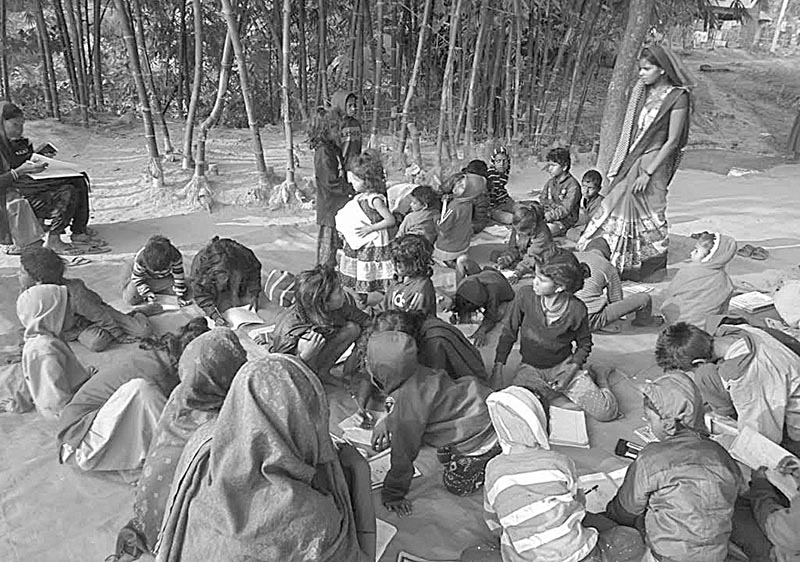New bill curtails Dalits’ right to education: Activists
Kathmandu, June 14
Bill to integrate some education laws stipulates that higher education will be free for indigent people, including Dalits and differently-abled people.
The bill stipulates that indigent people under the category of Dalits and differently-abled people, who lack means of livelihood, and those whose income is less than the amount fixed by the government, shall qualify for free higher education scheme.
Dalit rights activist Shailendra Prasad Harijan (Ambedkar) said as per the definition of the bill, no Dalit would qualify for free education scheme because it would be difficult to prove that Dalits had no means of livelihood.
“In our country, everybody, even indigent Dalit may hold a small plot of land. It may not be adequate, but almost all Dalits have their own means of livelihood,” he said.
Article 40 (2) of the constitution stipulates that a provision of free education with scholarship, from primary to higher education, shall be made for Dalit students. Special provision shall be made for Dalits for technical and vocational education.
Harijan said the bill’s proposal to provide free higher education to indigent Dalits was a violation of the constitutional right of Dalits guaranteed by Article 40 (2). “The constitution says that all Dalits have opportunity to free education with scholarship from primary to higher education, but this bill proposes to provide this opportunity to only indigent Dalits,” he said.
Chakra Man Bishwakarma, who was a member of the High Level Education Commission that submitted its report to the government five months ago, told THT that the government needed to bring changes in its policies to ensure the Dalits’ right to education. He said his commission had suggested that the government should provide free higher education to Dalits, but the government only talked about ‘indigent’ Dalits.
He said the government should have special plans to provide technical education to Dalits in a way that could help them develop skills for their traditional professions. According to him, Dalits’ right to education could be ensured only if the government provided at least one Dalit teacher for each school. “Many Dalit children do not go to school because of poverty. Dalit children suffer from lack of food and nutrition and therefore, each local level should have a revolving fund to provide food to Dalit children,” he said. He added that each school management committee should also have a Dalit representation to ensure implementation of policies that could protect Dalits’ rights.
Another Dalit rights activist Bhola Paswan said although the constitution ensured Dalits’ rights to free education up to higher education level, implementation of the government’s policies was ineffective.
“The government requires Dalit students to enrol at community schools to be eligible for free education, but due to party politics quality of education at community schools is deteriorating every year,” he said. He added that the government needed to enhance the quality of community schools if it wanted to protect the rights of Dalits and other marginalised communities.
Spokesperson for the Ministry of Education Hari Lamsal said the bill to integrate some education laws was in line with the constitutional provisions and his ministry was still discussing the contents of the new education policies to protect the interests of Dalits and minorities at schools.






